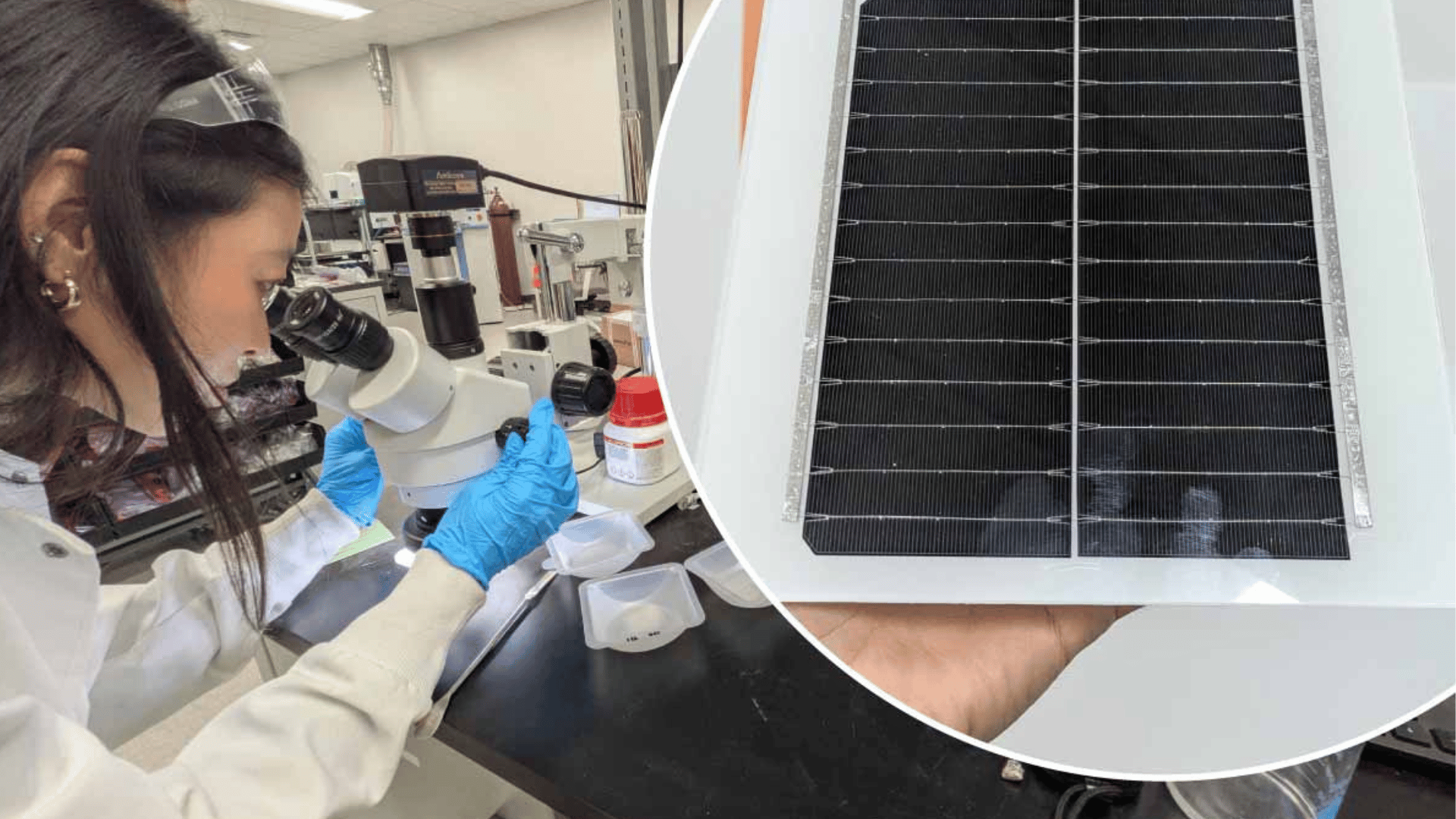A breakthrough in solar panel manufacturing takes a significant step toward a “closed-loop” manufacturing process.
Researchers at SolarCycle and Arizona State University (ASU) demonstrated a solar panel using 50% recycled glass from old panels. The research team showed how using recycled materials for new panels reduces waste and strengthens the domestic solar supply chain.
A Circular Solar Industry

ASU‘s Vice Dean for Research and Innovation led the research project. Zachary Holman wanted to test the performance of panels made with recycled materials. They fabricated two types of mini modules, or panels made with recycled glass. There was a baseline module using commercial glass and a test module made with a 50/50 blend of commercial and recycled glass.
Researchers call the recycled glass “cullet” and source it from end-of-life solar panels processed through SolarCycle’s recycling technology.
After evaluating both panels with efficiency tests, they say the results were hugely successful. Research explained that the recycled glass modules perform just as well as the new-material panels. In addition, there were no “statistically significant differences across any key metrics.”
“This is exactly the kind of result we hope for when industry and academia collaborate,” Dr. Holman said. “Together, we proved that you don’t have to sacrifice performance to build solar panels more sustainably.”
He added, “It’s not just a lab success—it’s a path forward for the industry.” The company will use recycled cullet as a primary input to make it a full-scale manufacturing process.
According to SolarCycle, the successful proof-of-concept research supports its mission to make the solar panel industry more sustainable. The company plans to construct a solar glass factory next to its recycling facility in Georgia. This would be the first of its kind. The company intends to use recycled cullet as a primary input to make the process a full-scale manufacturing process.
“By proving we can manufacture new solar panels using recycled materials that produce at peak performance levels,” said Pablo Dias, Chief Technology Officer and Co-Founder at SolarCycle. “We’re taking a major step toward making the solar industry more sustainable, scalable, and self-reliant.”







